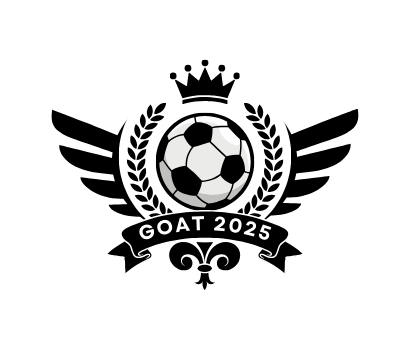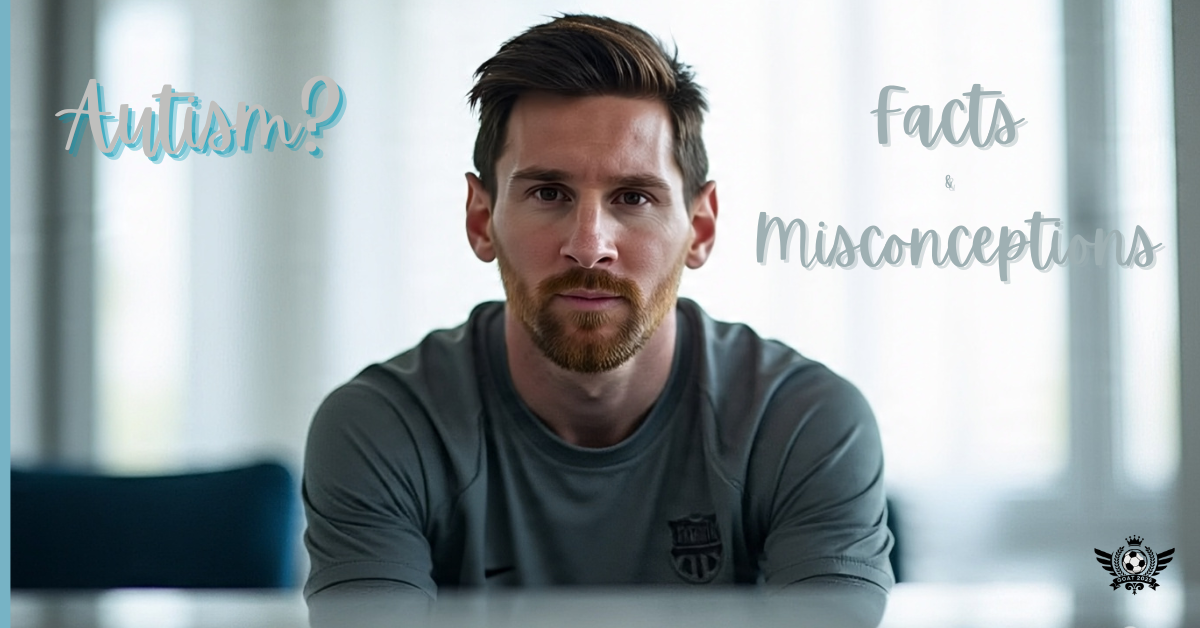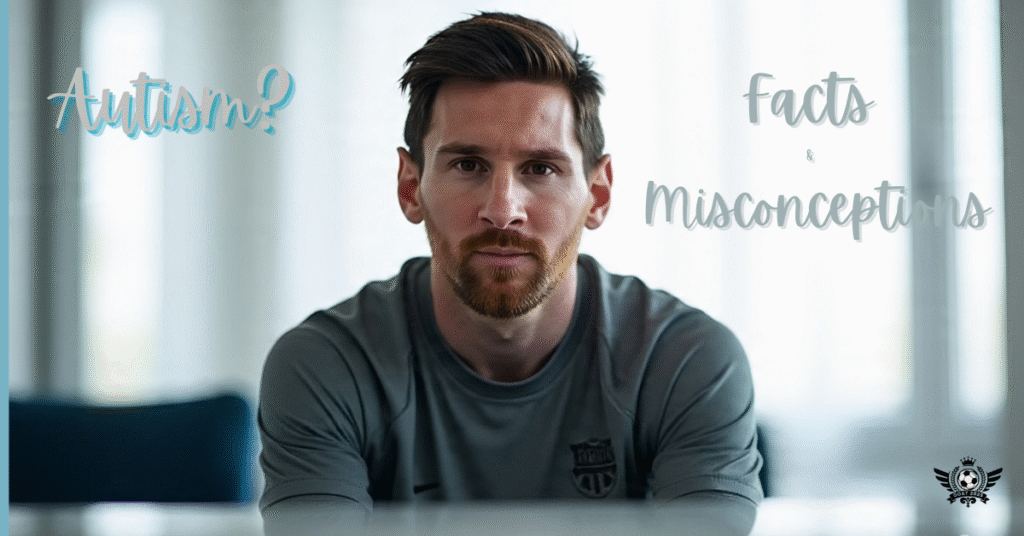
Does Lionel Messi Have Autism? Lionel Messi is not just a footballer—he is a global icon whose name resonates with fans across every corner of the world. Known for his quiet personality off the pitch and unmatched brilliance on it, Messi often sparks curiosity about his personal life. Among the most frequently asked questions online is: Does Lionel Messi have autism?
This blog aims to separate facts from misconceptions, helping readers understand where this speculation comes from, what autism actually is, and why it’s important to respect privacy while raising awareness.
Why Do People Ask If Lionel Messi Have Autism?
Several factors have fueled the question of whether Messi is on the autism spectrum:
- Reserved personality: Unlike many football stars, Messi is shy, introverted, and rarely speaks in public.
- Unique playing style: His intense focus on the pitch sometimes leads fans to associate him with traits linked to autism.
- Childhood health struggles: Messi was diagnosed with growth hormone deficiency (GHD) as a child, which often gets misunderstood in online discussions.
These elements combined created speculation, even though there has never been any confirmation.
What is Autism Spectrum Disorder (ASD)?
Before exploring Messi’s story, it’s important to understand what autism really is.
- Autism is a neurodevelopmental condition that affects communication, behavior, and social interaction.
- It is called a spectrum because individuals experience it in very different ways—ranging from mild traits to significant challenges.
- Common traits include difficulty with social cues, repetitive behaviors, deep focus on specific interests, and sometimes differences in speech or movement.
Understanding autism helps us recognize why public figures are sometimes wrongly linked to it.
Examining the Claims About Messi
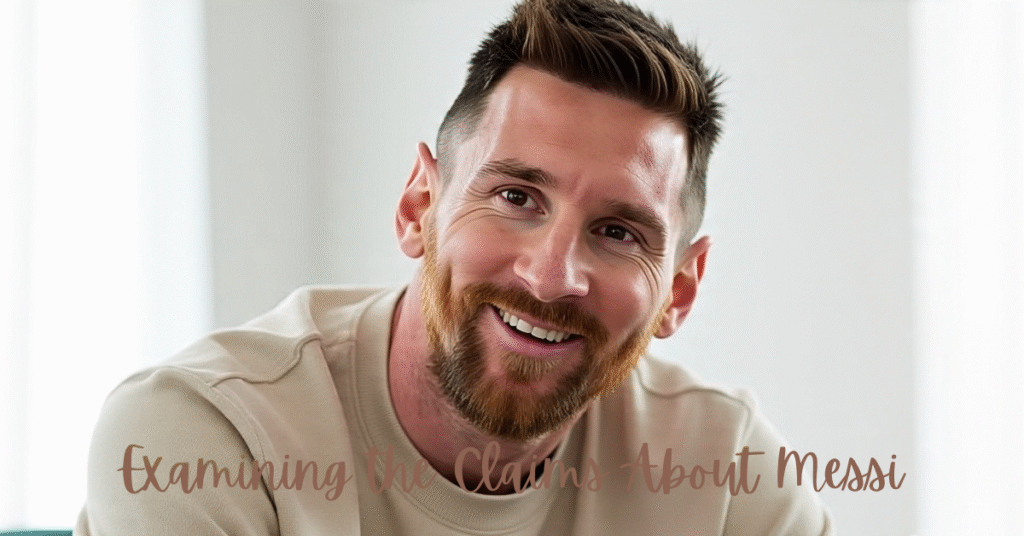
The question “Does Messi have autism?” mostly comes from fan forums, blogs, and social media discussions.
- Some early interviews described Messi as shy and reserved, which sparked rumors.
- Fans noticed his quiet demeanor during press events compared to other outspoken football stars.
- Social media amplified these claims without credible sources, creating a widespread misconception.
However, no medical reports, interviews, or statements confirm Messi being autistic.
Has Messi Ever Confirmed Having Autism?
The short answer: No.
Also Read:- Lionel Messi’s Religion & Beliefs – The Faith of a Football Legend
- Messi has never spoken publicly about having autism.
- His family and doctors have only ever confirmed that he suffered from growth hormone deficiency, a completely different medical condition.
- Growth hormone therapy allowed him to grow normally and continue his football journey.
Therefore, linking Messi to autism has no factual basis—it is speculation, not reality.
Traits People Associate With Autism in Messi
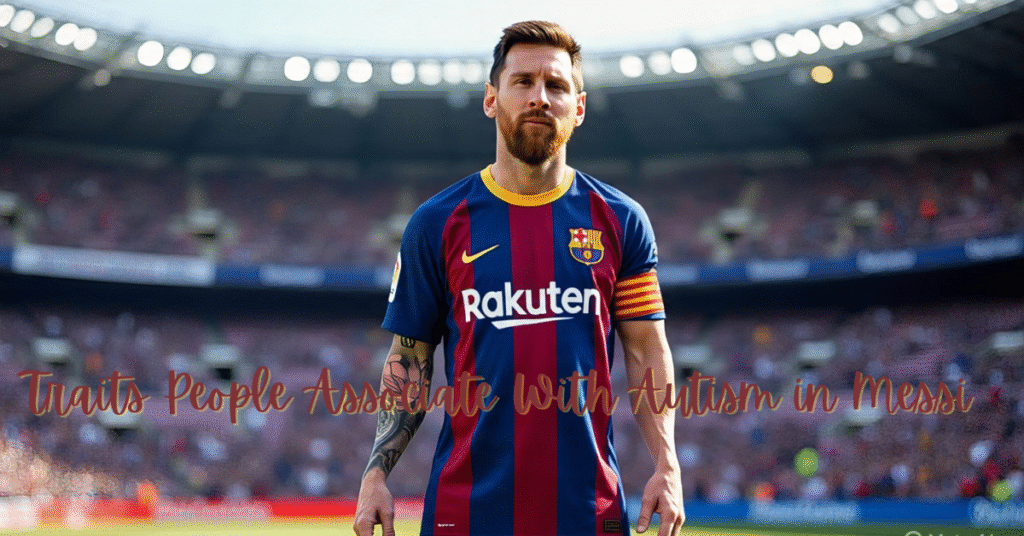
Fans often point to certain behaviors that resemble autistic traits, such as:
- His introverted personality and preference for privacy.
- His laser-like focus on football and training.
- His reserved communication style during interviews.
While these traits can exist in people with autism, they are also common in many introverted or highly disciplined individuals. It is incorrect to equate personality with a medical condition.
Misconceptions About Autism in Celebrities
Public figures are often linked to autism for the wrong reasons:
- People sometimes assume that extraordinary talent must come with a unique neurological condition.
- Media speculation often blurs the line between fact and rumor.
- Labeling without evidence can reinforce stigma instead of creating understanding.
It’s important to remember that genius and autism are not the same thing, and one should never replace the other in public discussions.
Messi’s Real Struggles and Triumphs
While Messi does not have autism, his life journey still carries inspiring lessons:
- He battled growth hormone deficiency as a child, a condition that made his football dream uncertain.
- His move from Argentina to Barcelona at a young age required courage, discipline, and resilience.
- Through hard work, he overcame obstacles to become the greatest footballer of all time.
Messi’s story is one of perseverance—not labels.
The Positive Side of the Conversation
While the autism rumor about Messi is untrue, it highlights something important:
- Autism should never be seen as a negative association.
- Many people on the autism spectrum achieve extraordinary success in sports, arts, and sciences.
- Conversations like these can raise awareness and help reduce stigma.
Instead of speculating about Messi, we should focus on respecting differences and celebrating diversity.
Conclusion
So, does Lionel Messi have autism? The answer is no—there is no medical evidence or statement from Messi confirming this. The confusion arises from his personality traits and health struggles, but these do not equal autism.
Messi’s greatness comes not from labels, but from his hard work, dedication, and love for football. As fans, we should admire him for what he is—a once-in-a-lifetime athlete and a role model of resilience.
FAQs
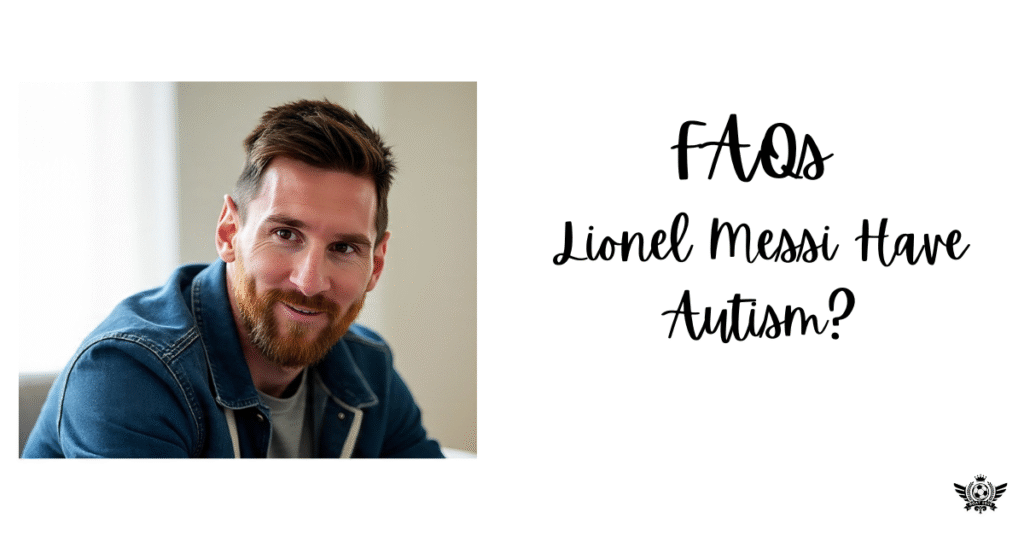
1. Has Lionel Messi ever said he has autism?
- No, Messi has never confirmed or spoken about having autism.
- His family and medical records only mention growth hormone deficiency.
- The autism rumor is based on speculation, not fact.
2. Is autism linked to football talent?
- There is no proven link between autism and football skills.
- Talent comes from practice, training, and natural ability.
- People with autism can be great athletes, but autism itself is not the cause of talent.
3. Why do people think Messi is autistic?
- His introverted nature and reserved communication style.
- His extreme focus on football.
- Misunderstandings fueled by online discussions.
4. What medical condition did Messi have as a child?
- Messi was diagnosed with growth hormone deficiency (GHD).
- He received hormone therapy to grow normally.
- This treatment allowed him to continue his football journey.
5. How can we respect public figures’ privacy while spreading awareness?
- Avoid labeling without evidence.
- Share facts, not rumors.
- Use public curiosity as a chance to educate about autism positively.
1. What was Messi diagnosed with at 11?
- At the age of 11, Lionel Messi was diagnosed with Growth Hormone Deficiency (GHD).
- This condition meant his body did not produce enough growth hormone, affecting his physical development.
- He underwent hormone treatment, which was crucial in allowing him to grow and continue his football career.
2. Does Messi suffer from anxiety?
- Messi has never publicly stated that he suffers from anxiety.
- Like many athletes, he has faced pressure and stress during major matches, but that is considered normal at the elite level of sport.
- He manages performance pressure through experience, focus, and mental discipline.
3. Does Messi have a high IQ?
- While Messi has not taken an official IQ test, many experts describe his “football IQ” as extremely high.
- He is praised for his quick decision-making, tactical vision, and ability to read the game better than most players.
- In terms of intelligence on the pitch, Messi is widely considered one of the smartest footballers in history.
4. What languages does Messi speak?
- Messi’s native language is Spanish (Argentinian dialect).
- He also understands Catalan, the regional language of Barcelona, after living there for decades.
- While he is not fluent in English, he can understand some phrases, especially related to football.
